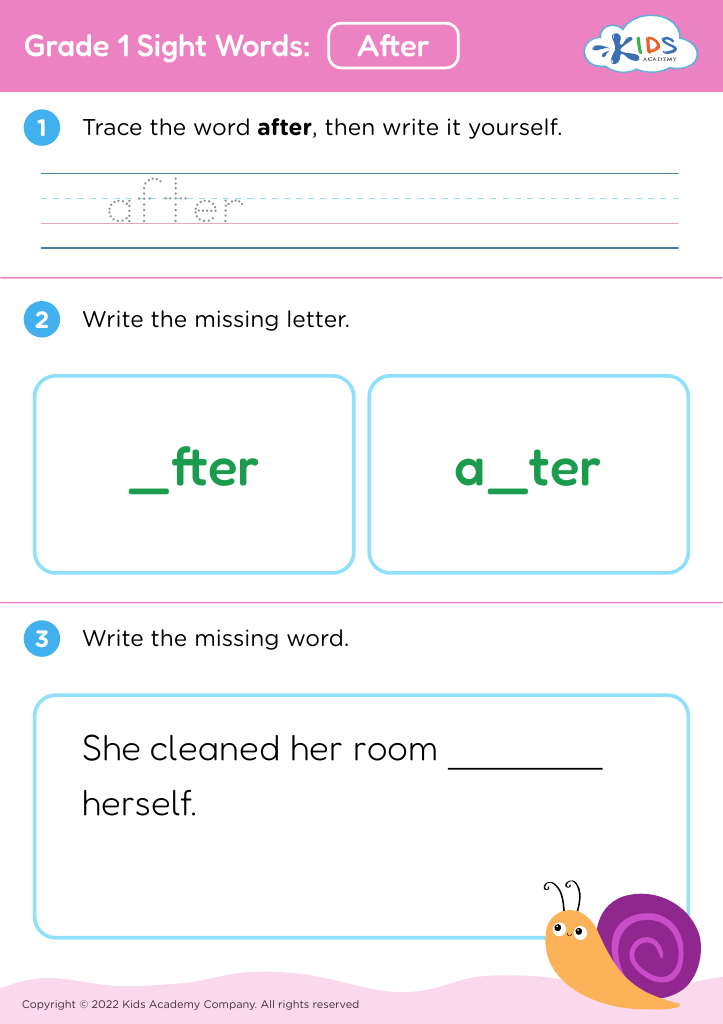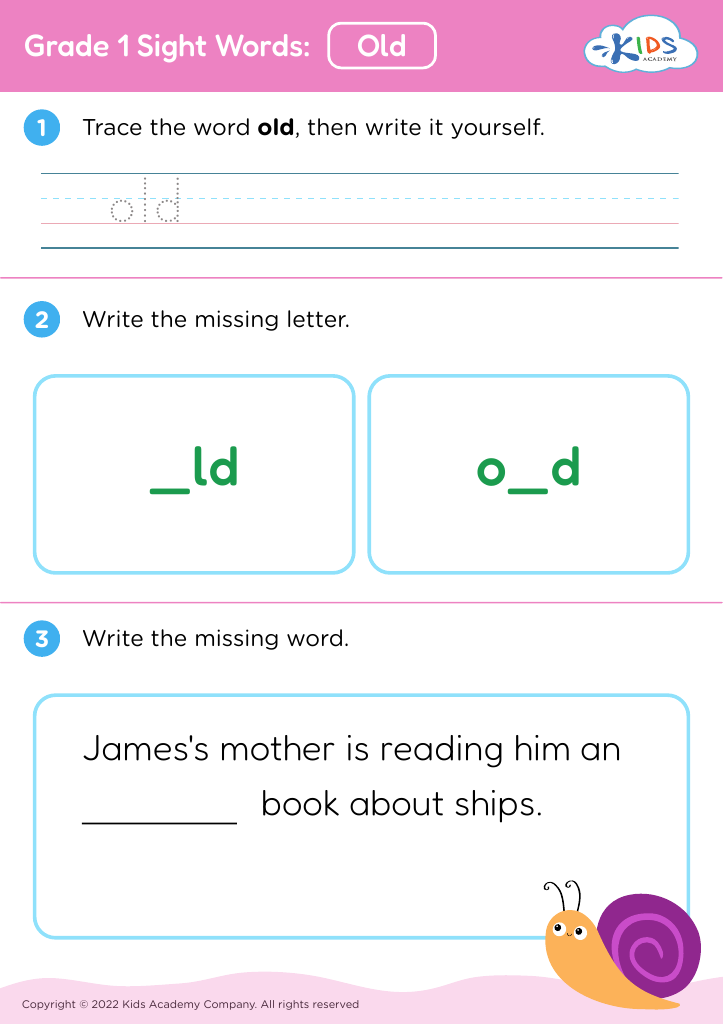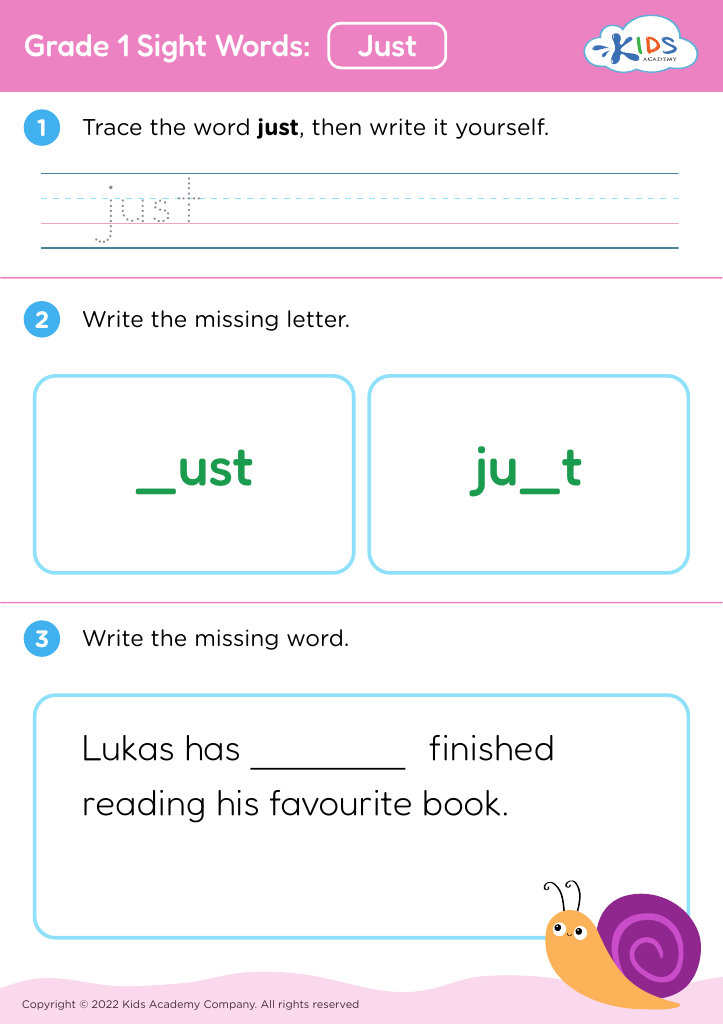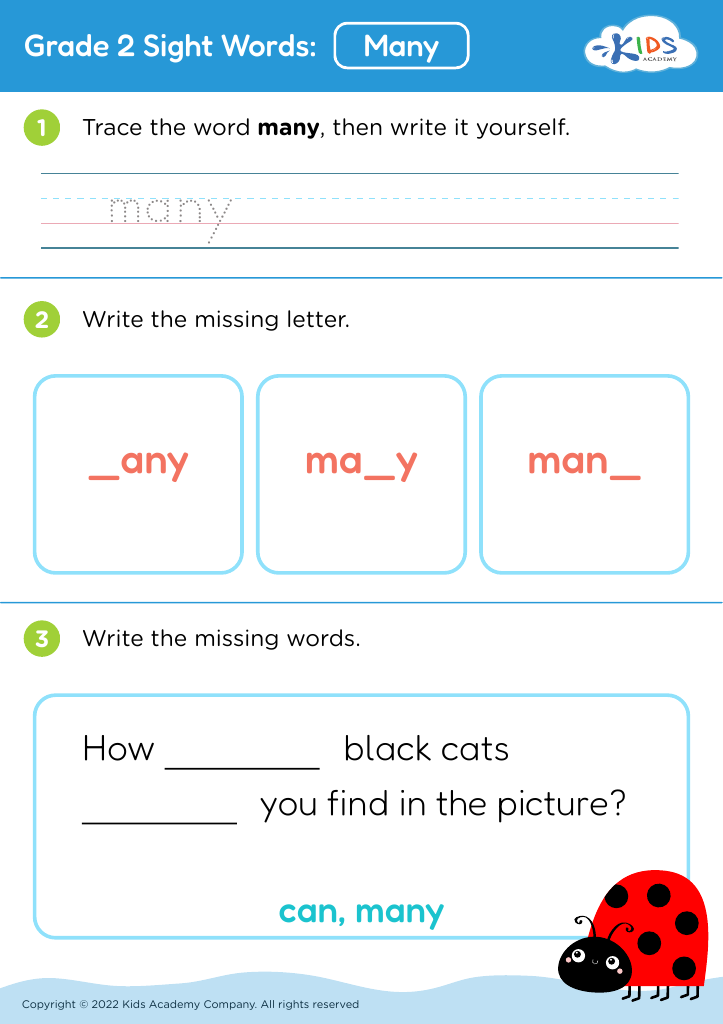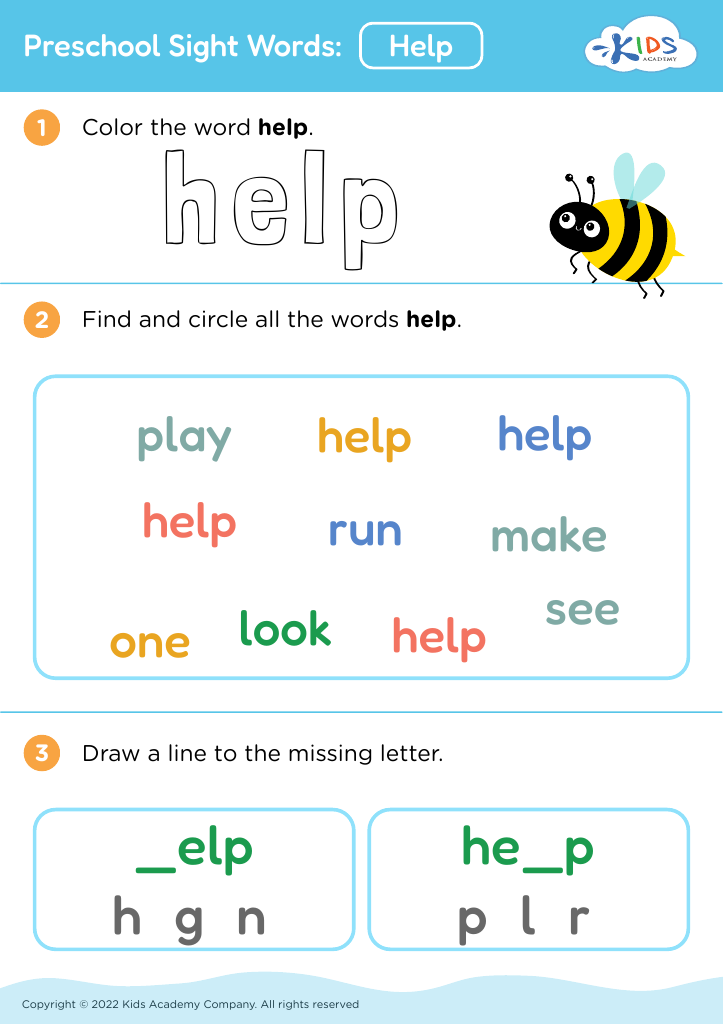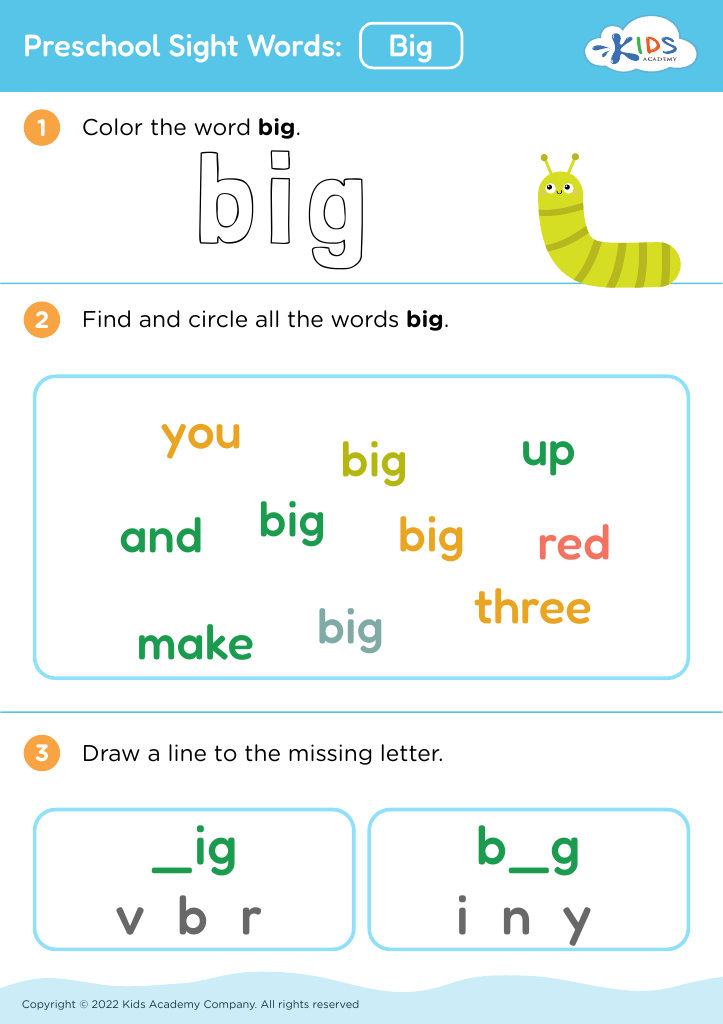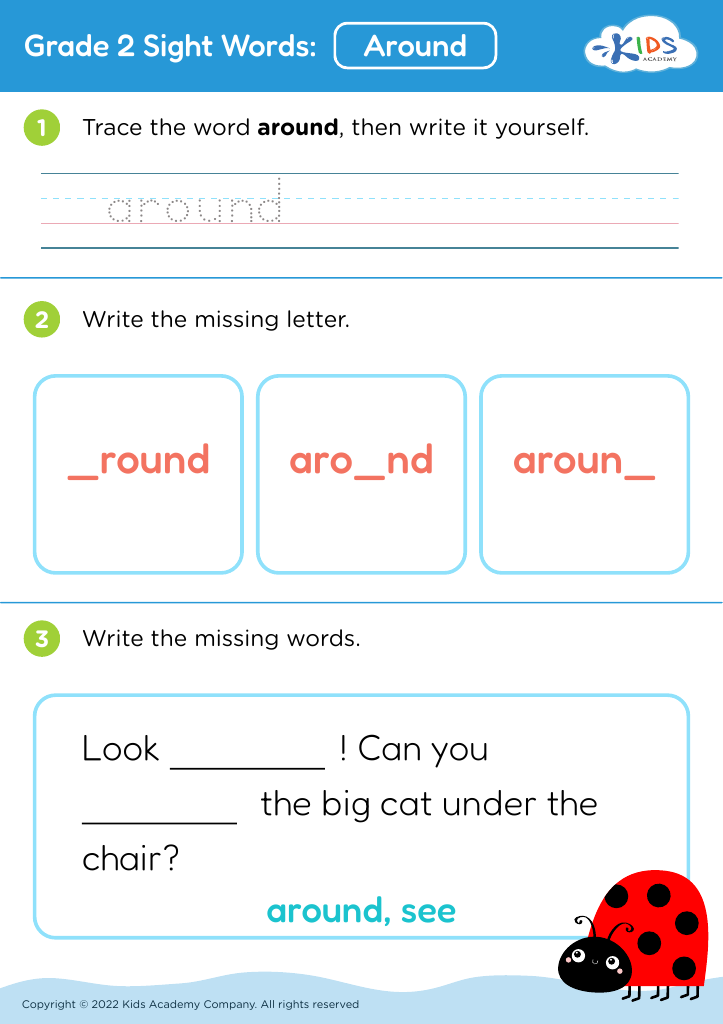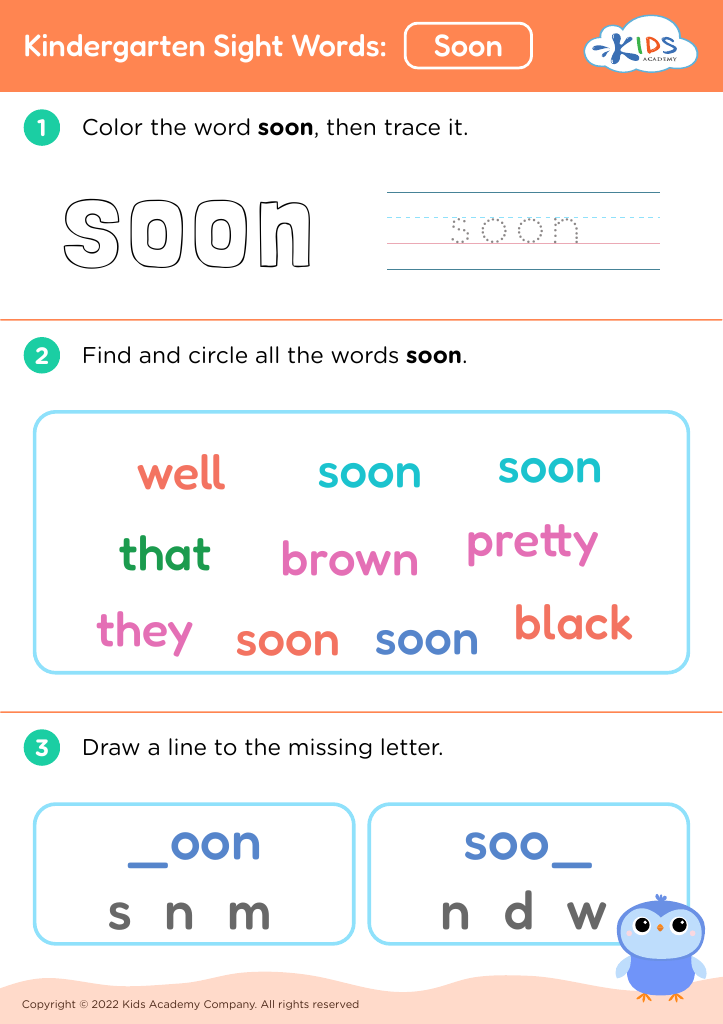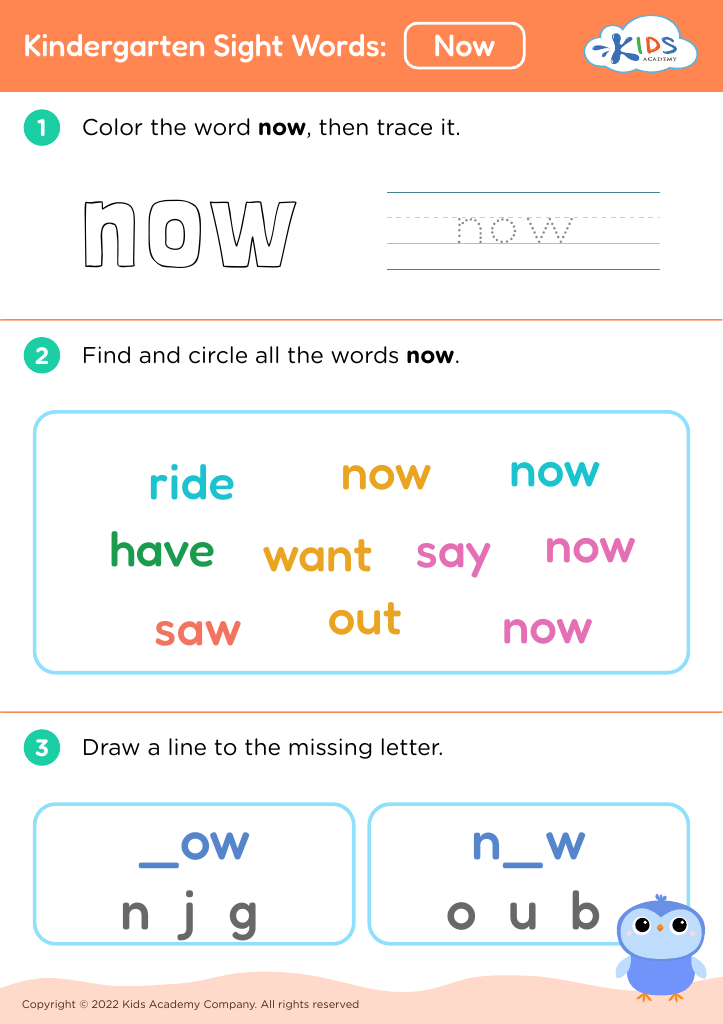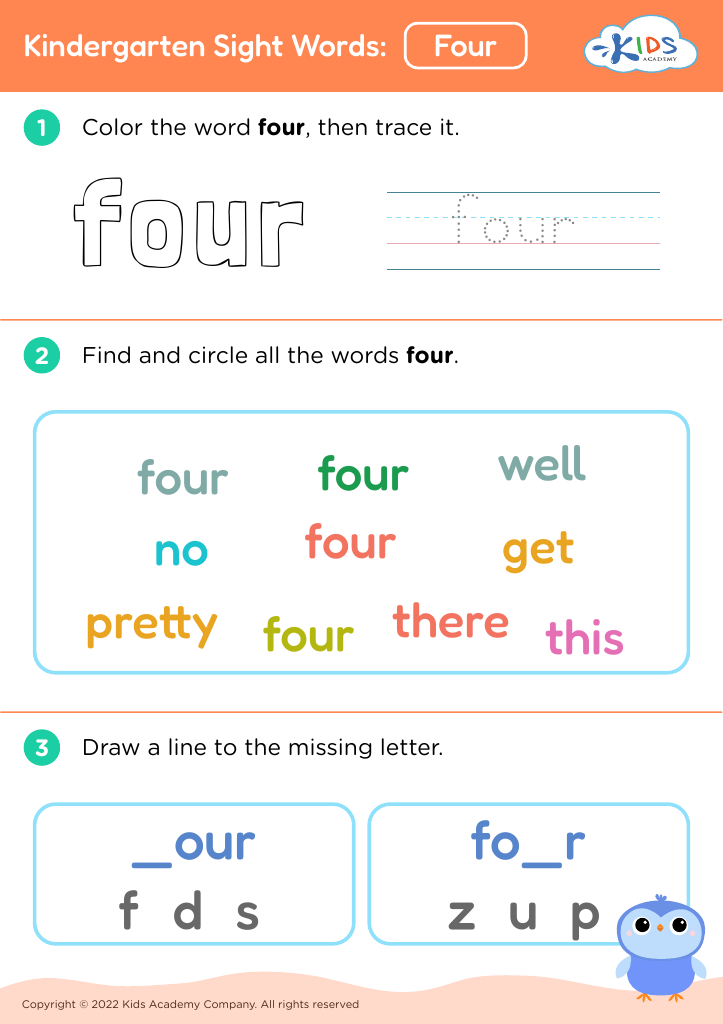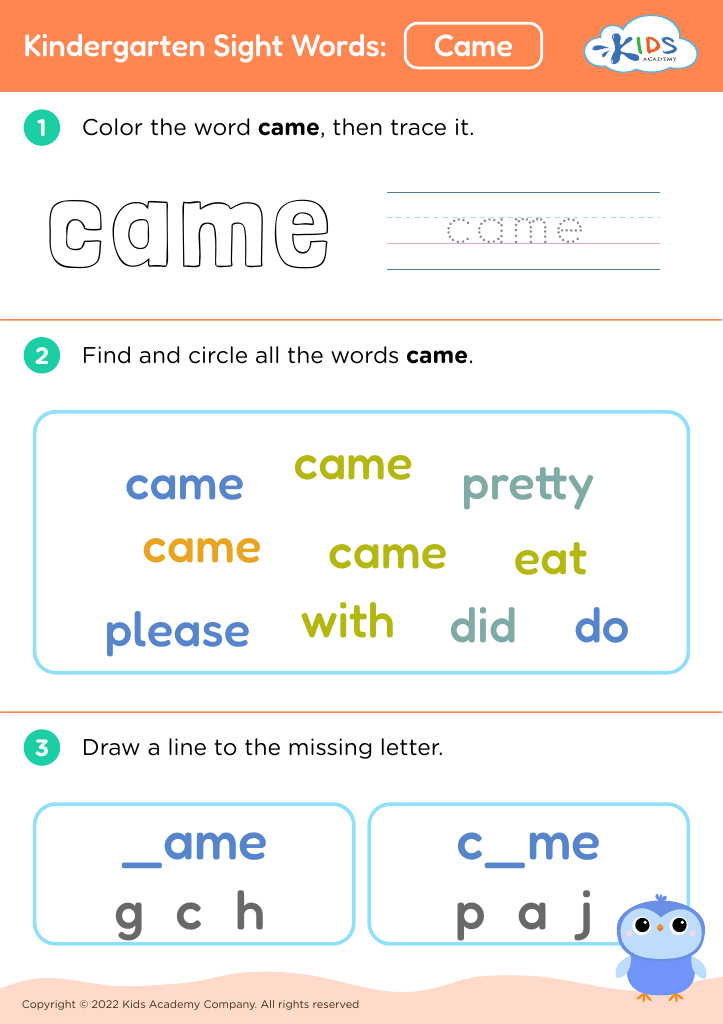Basic Math Skills Building Vocabulary Worksheets for Ages 5-8
17 filtered results
-
From - To
Enhance your child's understanding of math with our engaging Basic Math Skills Building Vocabulary Worksheets designed for ages 5-8! These worksheets focus on foundational concepts like numbers, patterns, addition, and subtraction, while also enriching vocabulary essential for math literacy. Each activity includes colorful visuals and interactive elements to make learning fun and stimulating. Perfect for homeschoolers or supplemental practice, our resources help young learners build confidence and competence in math through repetition and exploration. Empower your child to excel in mathematics while enjoying the learning process with our specially crafted worksheets tailored for early learners!
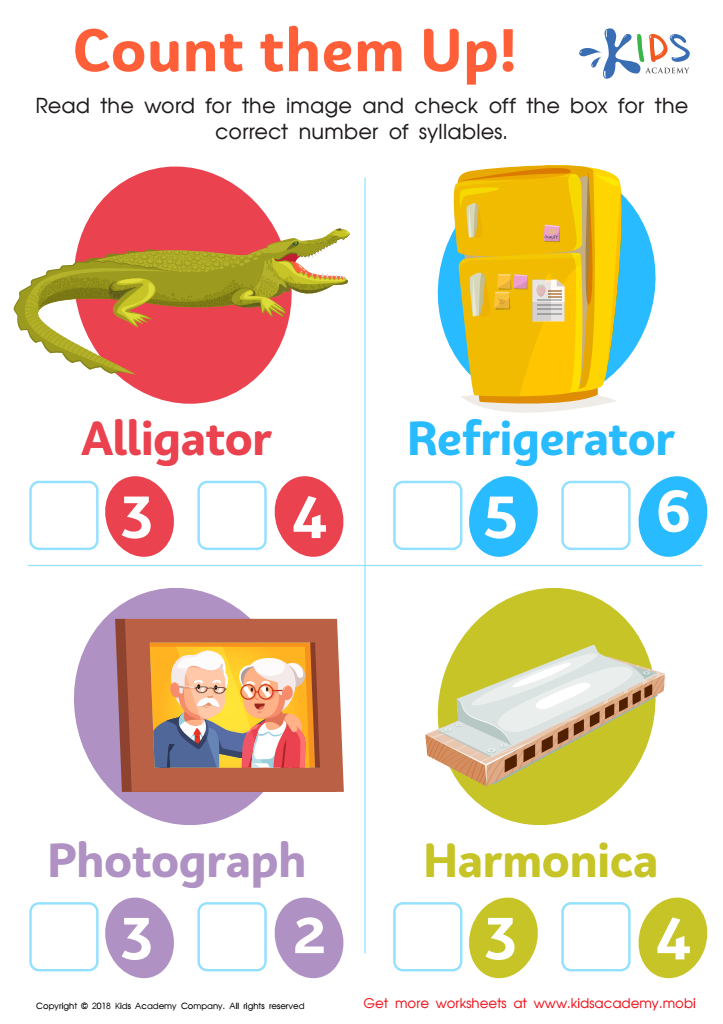

Count Them Up Worksheet
Building math vocabulary for children aged 5-8 is crucial for their academic development and future success. At this early age, children are mastering fundamental concepts that will serve as the foundation for more complex mathematics topics later on. When parents and teachers invest time in enhancing math vocabulary, they are equipping children with the language needed to articulate their understanding of numbers, operations, and problem-solving strategies.
A robust math vocabulary allows children to engage in discussions about mathematical concepts, ask questions, and explain their reasoning. This not only fosters a deeper comprehension of mathematical ideas but also builds confidence in expressing their thoughts. Moreover, a strong vocabulary enables students to better grasp problem-solving scenarios, as they can interpret instructions and descriptions accurately.
Additionally, increasing math vocabulary helps demystify words that often confuse learners, such as “sum,” “difference,” “greater than,” and “less than.” As children advance in their education, a strong grasp of math terms will support their abilities in reading comprehension and enrichment in subjects that rely on logic and mathematical understanding. Therefore, parents and teachers play a vital role in nurturing this vocabulary, creating a solid foundation for lifelong success in mathematics and beyond.
 Assign to My Students
Assign to My Students

